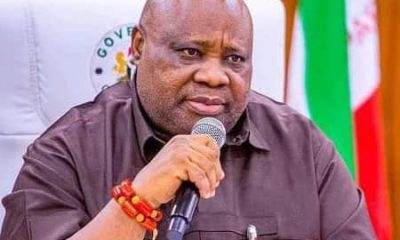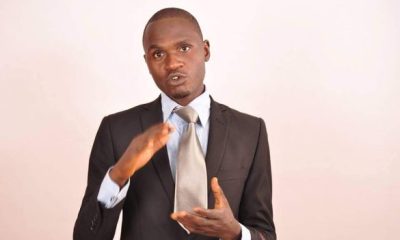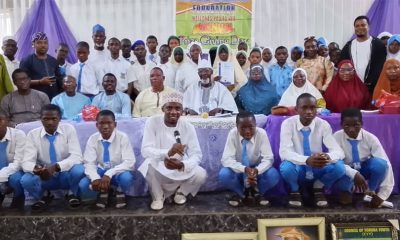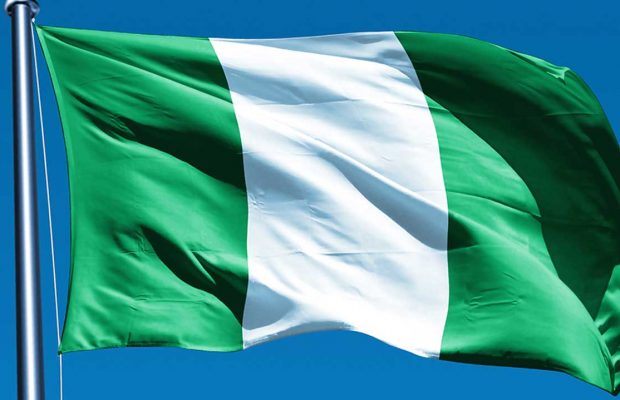News
Nigeria: Beyond The Rhetoric By abiodun KOMOLAFE

Without being unnecessarily immodest, a period of thirty years is enough for an objective assessment of how surefooted or otherwise democracy as a system of government is in any given society. The panoramic overview of performance, functional utility, and societal relevance of the extant Public and Social Institutions, as these relate to the delivery of goods and services and dividends of democracy to the people, still remains the surest way of attaining to a credible barometer or valid and acceptable profile assessment of democratic governance.
The critical part and key ingredient of any political struggle is that it must have well-defined principles, long-term goals, and a well-grounded ideologicalstate leaning upon which the Grundnorm and developmental objectives of the country must be based. Otherwise, any attempt at governance remains a mockery of reality; a humpty dumpty, waiting to collapse or fizzle out. So, in the last thirty-years or thereabouts, what have been our experiences from the country’s diverse attempts at institutionalising democratic ethos; and entrenching democratic values of tolerance, accommodation, issue-based politics, hitch-free succession, political participation, and electioneering processes? Well, an eclectic view of emerging regimes of governments during the period under review will give us a clearer picture of how Nigeria has so far fared.
Let us start with Ibrahim Babangida, Nigeria’s self-styled military president. The Minna, Niger State-born combatant officer did not nurse any pretence as a military ruler. Needless to repeat also that ‘Maradona’, as he was fondly called, was a child of circumstance who came as a ‘brilliant’ and ambitious soldier but left with a bruised ego and an unfulfilled dream of becoming a civilian president of Nigeria. Babangida came in to rescue and protect the interest of the conniving elites in the country. Unfortunately, the ‘evil genius’ ended up bastardizing Nigeria’s situation the more! The late MKO Abiola was his friend. Of course, that is why a section of Nigerians is insisting that Abiola should not be forgiven for the havoc he joined IBB to wreak. After all, for the duo, it is just like a fortuitous power game, or calculated gamble, which went sideways! And, by the time the former military ruler would step aside in 1993, democratic practice in Nigeria had laid prostrate. It was only waiting to be uprooted.
Realising that there was a vacuum in the topmost leadership structure of the country, a cross-section of the ‘owners of Nigeria’ presented Olusegun Obasanjo, a former military ruler with a Messianic façade, as the preferred choice. Though what happened or did not happen thereafter is a matter for another day, Obasanjo became Nigeria’s president only to end up imposing his subtle ‘messianic dictatorial imprimatur’ on the sands of time and governance in Nigeria. Put succinctly, he came to complete the ruination of the country’s public administration, which he left-off, few years earlier. He succeeded! Obasanjo was highly self-opinionated and intolerant. He was not a team player! In fact, the retired General was everything but a democrat! Under his watch, the civil service lost the vision and the essence of an ideal bureaucracy as espoused by Max Weber. Corruption became endemic; and most choice houses in Abuja, Nigeria’s Seat of Power, belonged to civil servants whose legitimate salaries could not even pay the requisite rents for apartments in those choice houses. The fight against corruption under Obasanjo remains what it is: a selective attack on some greedy and corrupt Nigerians whose economic interests and socio-political agenda did not align with those of the General. His style of administration typified the tyrannical regime of despots and painted, in bold relief, the thoughts and meditations of Max Weber on the Limitations of Democracy. By the time Obasanjo was leaving office, following a botched third-term bid, the uprooted and battered democratic system in Nigeria had taken flight.
Although, Goodluck Jonathan did not predetermine to ruin Nigeria, he was practically not man enough to effect any meaningful positive change either. He was a reluctant contestant who, against his desire or ambition, was persuaded become president in 2009; and he became one! Jonathan tried to please everybody but, as fate would have it, he ended up displeasing everybody; and the national economy, especially, was in disarray! A substantial amount of money was thrown at the problem of insecurity. Unfortunately, it escalated! Security arrangements were designed to fail; and they failed woefully! Some quarters were even of the opinion that some smart guys in the military industrial complex capitalized on Ebele’s alleged cluelessness to turn the national misfortune into their own personal fortune. Human lives depreciated in value. Social tension and incohesion became the order of the day. Sad that that administration was clueless to the end; and the country is yet to recover from the shock!
Then entered Muhammadu Buhari who, after several attempts, eventually had his way! Yes! Nigerians love Buhari, our president. We want him to succeed and be remembered, long after he will have left Abuja, with his ‘reputation of integrity’ for Daura, his country home. The raison dètre for his election and the collective mandate given to him by Nigerians is for him to fix the country. Whatever may be the conceptual limitations of the understanding of democratic principles in the country, the system we run, and how we run it predisposes common people to hunger, poverty, deprivation, frustration, anger, and anxiety. It is therefore not for him to be manufacturing excuses and lame-footed explanations as to why things are not working. After all, Nigerians knew that the country wasn’t working before Jonathan was sent packing with the thumb. The retired General may be doing his best, but, as things stand, events, especially, in the last one year have not only shown that his best is not giving us anything near the least of our expectations, it has also reduced Nigeria to an object of scorn and ridicule, snowballing into a near ‘pariah status’ among the comity of nations.
Nigerians want to know where this government is taking the country. Since independence, nothing seems to be on good footing. No policy works as anticipated; development targets proposed were never met. Yet, governments come and go, life goes on! For the country not to implode this time, urgent steps must be taken to address salient socio-political-cum-economic issues of hunger, safety and social integrations.
All eyes are on the forthcoming Edo and Ondo States’ governorship elections!
May the Lamb of God, who takes away the sin of the world, grant us peace in Nigeria!
_KOMOLAFE writes in from Ijebu-Jesa, Osun State (ijebujesa@yahoo.co.uk; 07087941459 – SMS only)_
-

 News4 days ago
News4 days agoRamadan, Lent: Shettima Calls For National Unity And Compassion
-
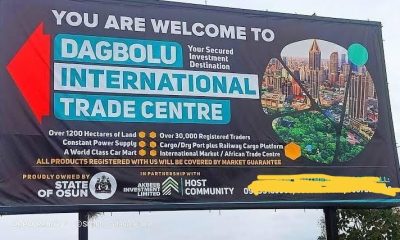
 Opinion4 days ago
Opinion4 days agoReinventing Osun’s Economy Through Dagbolu Intl. Trade Centre: From Quiet Market Lessons To Regional Trade Revolution By Adeboye Adebayo
-
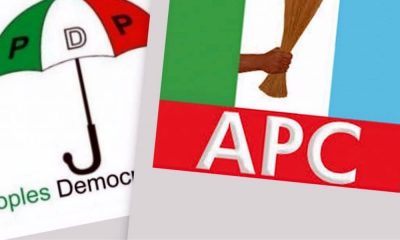
 News4 days ago
News4 days ago‘Wike Factor’: Another PDP Chairmanship Candidate Steps Down For APC In FCT
-

 News3 days ago
News3 days agoInsecurity: Kogi Schools Resume On Monday



